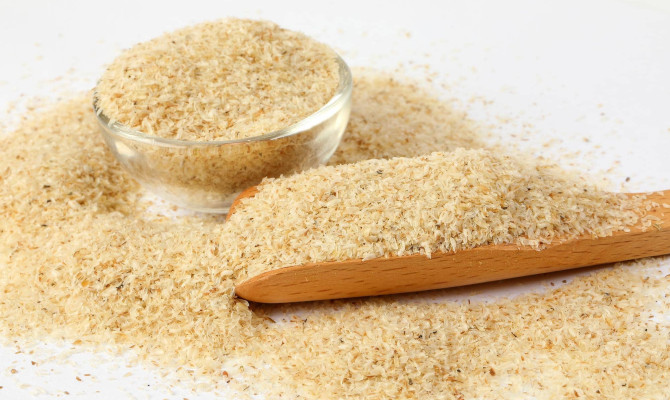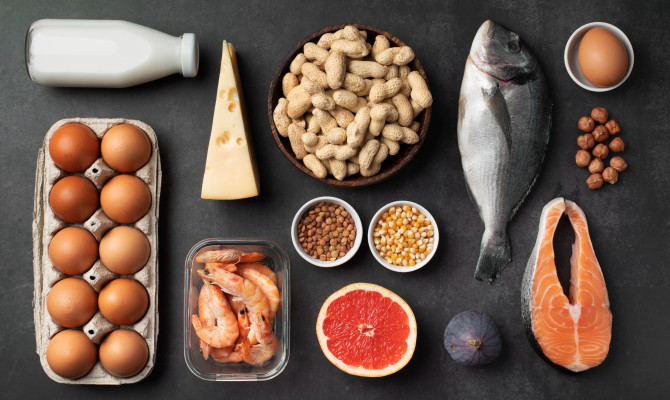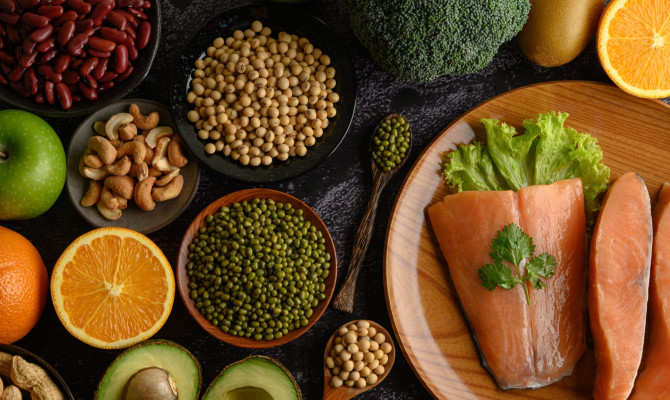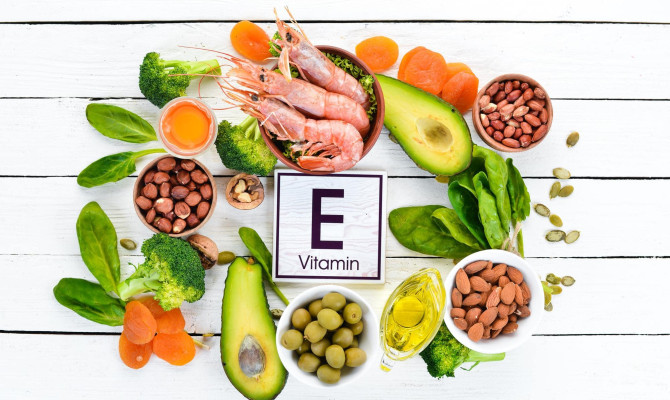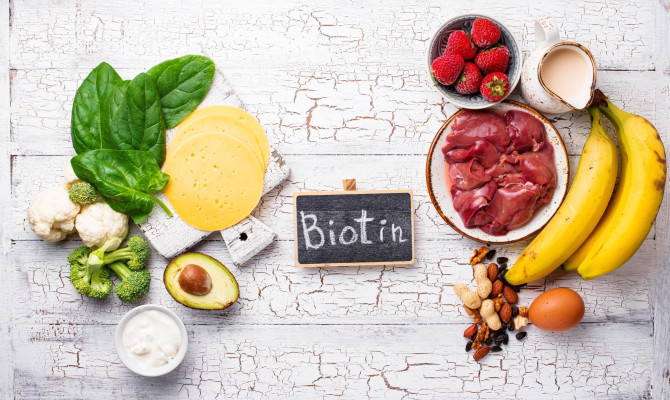Potassium and its health benefits

- Potassium
- 22 Aug 2023
Overview
What is potassium?
A mineral called potassium exists in the food that we consume. Our bodies do not naturally produce potassium. Hence, consuming the proper proportion of potassium-rich meals and beverages is so crucial. Potassium deficiency can cause significant health problems. However, consuming too much can result in short-term or long-term health issues. Healthy kidneys keep the body’s potassium levels within normal range, eliminating extra potassium through urine.1Overview | Researched based study from Rsc.org

Facts
- Potassium is an essential mineral and is represented by the atomic number 19 or the symbol K.
- By mass, potassium makes up 0.2% of the human body, making it the 8th or 9th most prevalent element.1Overview | Researched based study from Rsc.org
- The body contains almost the same amount of potassium as chlorine and sulfur, with only calcium and phosphorus being more significant.
- A broad spectrum of enzymes and proteins contain potassium ions.
Sources
Sources of potassium
Potassium is present in the following foods
- Fruits – bananas, grapes, blackberries, oranges, apricots, and pineapples.
- Vegetables – carrots, potatoes, pumpkins, cucumber, broccoli, tomatoes, and green leafy vegetables like spinach.
- Animal source – lean meats, fish, and fish.
- Dairy products – milk and yogurt.
- Lentils and legumes – soybeans, kidney beans, nuts like almonds, peanuts, and walnuts.3Sources| Researched based study from Nih.gov
Supplements
In dietary supplements, potassium can be found independently, as part of multivitamin or multimineral formulations, or as a salt alternative.
Salt substitutes
- Many salt replacements, including those used to replace table salt, contain potassium as a component.
- Before taking any potassium supplements, people with kidney illness or those on specific drugs should speak with a doctor to prevent their blood potassium levels from becoming excessively high.
Numerous types of potassium are available as supplements, including
- Potassium chloride – a standard form. 3Sources| Researched based study from Nih.gov
- Potassium aspartate.
- Potassium citrate.
- Potassium bicarbonate.
- Potassium phosphate.
- Potassium gluconate.
Dosage
Dietary requirement
Depending on a person’s age and gender, they may need to ingest different amounts of potassium, which are listed in AI below 4Dosage| Researched based study from Nih.gov
For infants
- Birth to 6 months – 400 mg/day.
- 7 to 12 months – 860 mg/day.
For kids
- 1 to 3 years – 2000 mg/day.
- 4 to 8 years – 2300 mg/day.
- 9 to 13 years – male-2500 mg/day; females-2300 mg/day.
For young adults and adults
In males
- 14 to 18 years – 3000 mg/day.
- 19 to 50 years – 3400 mg/day.
In females
- 14 to 18 years – 2300 mg/day.
- 19 to 50 years – 2600 mg/day.
In pregnant women
- 14 to 18 years – 2600 mg/day.
- 19 to 50 years – 2900 mg/day.
In lactating women
- 14 to 18 years – 2500 mg/day.
- 19 to 50 years – 2800 mg/day.
For older adults, 51 and above
- Male – 3400 mg/day.
- Female – 2600 mg/day.
Adequate Intake (AI) is the intake level that is presumed to provide nutritional adequacy when insufficient data exists to create an RDA.4Dosage| Researched based study from Nih.gov
Benefits

Health benefits
Following are some health benefits of potassium
- Regulates blood pressure – high blood pressure may be prevented or treated with an appropriate potassium intake.
- Cardiovascular disease – high potassium and low sodium intake may lower the stroke risk and cardiovascular disease. 5Benefits| Researched based study from Medlineplus.gov
- Bone maintenance – potassium might be necessary for bone health. The bone mineral density may be higher in people who eat plenty of potassium-rich vegetables and fruits.6Benefits| Researched based study from Americanbonehealth.org
- Muscle maintenance – also, older adults and those with medical problems that cause muscle atrophy may benefit from a diet rich in potassium.
- Kidney stones – inadequate potassium intake can result in calcium loss from bones and increased urine calcium levels. Urine calcium may deposit in the kidneys as stones, which could be very painful. Increasing the potassium intake in the diet decreases the chance of getting kidney stones.7Benefits| Researched based study from Nlm.nih.gov
The body uses potassium for many body functions as follows
- Keeps the heartbeat regular.
- Helps in nerve conduction.
- Brings in nutrients and sends out waste in the cells.
- The release and activity of hormones.
- Normal kidney function.
- Regulates blood pressure.
- Metabolism of insulin and glucose.
- Balances electrolytes and fluids.1Benefits| Researched based study from Rsc.org
- Contractions of the muscles.
Deficiency
Deficiency of potassium
Symptoms of deficiency
The range of millimoles per liter of potassium in normal blood is 3.6 to 5.2. 8Deficiency| Researched based study from Mayoclinic.org Hypokalemia, or low blood potassium, is characterized by a range of symptoms depending on how severe the condition is
- Extreme tiredness.
- Abnormal heartbeat.
- Palpitations.
- Cramps or muscle spasms.
- Weakness and numbness.
- Tingling experience.
- A lot of urine.
- Extreme thirst.
- Constipation.
Deficiency reasons
A low level of potassium may occur due to various reasons
- Overuse of – alcohol, diuretics, or laxatives.
- Certain antibiotics – penicillin and carbenicillin.
- Health conditions – chronic kidney disease, diabetic ketoacidosis,9Deficiency| Researched based study from Mayoclinic.org Crohn’s disease, and primary Aldosteronism.
- Deficiencies of magnesium or folic acid.
- Other reasons – diarrhea, vomiting, or excessive sweating.
People prone to deficiency
- Athletes who train in hot weather and sweat a lot.
- Workers in jobs with severe physical demands.
- People with problems in digestion and absorption.
- Those who struggle with eating disorders.
- Smokers and alcoholics.
- Addicts of drugs.
Side effects
Side effects of potassium
Hyperkalemia is the medical term for an increased potassium level in the blood. It is rare and can be seen in the following people
- Supplemental potassium in excess.
- Kidney illness.
- Using cocaine.
- Severe burns.
Side effects may include the following symptoms
- Stomach upset.
- Stomach pain.
- Diarrhea.
- Nausea.
- Vomiting.
- Gas.
Overdose
Overdose toxicity of potassium
Overdose may cause the following
- Paralysis.
- Muscle weakness.
- Irregular heartbeat.
- Tingling sensation.
- Low blood pressure.
- Confusion.10Overdose| Researched based study from Medlineplus.gov
- Coma.
- Sometimes, death.
Precautions
What precautions should one take while consuming potassium?
People with the following medical conditions and those under medications should be cautious and only consume potassium supplements on a doctor’s advice
- Heart disease.
- Digestive problems.
- Kidney disease
- Addison’s disease.
- Diabetes
- Stomach ulcers.
- Other health problems.
Interactions
Potassium interactions
Potassium supplements may interact with the following medications
- Prescription drugs for high blood pressure – potassium levels are raised by medications like ACE inhibitors and ARBs (angiotensin receptor blockers). Combining these with potassium supplements may result in excess potassium in the body.11Interactions| Researched based study from Hopkinsmedicine.org
- Potassium-saving diuretics or water tablets – may increase the potassium levels in the body. They could result in the body having too much potassium if taken alongside potassium. 12Interactions| Researched based study from Sciencedirect.com
Takeaway
Takeaway
Like other medications, people should only take potassium supplements under a doctor’s supervision. People with specific medical issues and those taking medicine for any health issue are more at risk. However, there are no adverse effects from consuming moderately high-potassium foods. If a person has no risk factors, changes in their body’s potassium levels might not cause concern. It is frequently sufficient for healthy kidneys to control body potassium. Level-affecting medical issues should be routinely monitored. If any discomfort is felt, get in touch with a medical professional.
Any feedback on this article?
 This Articles content was accurate
This Articles content was accurate Very Informative Article
Very Informative Article I have a question or a comment
I have a question or a comment
 This article contains inaccurate content
This article contains inaccurate content This article was not helpful
This article was not helpful I have a question or a comment
I have a question or a comment
We appreciate your helpful feedback!
Checkout our social pages
References
-
Royal Society of Chemistry
Potassium | Overview
-
Medline Plus
Potassium | Benefits
-
National Institutes of Health
Potassium-Fact Sheet for Consumers | Sources
-
National Institutes of Health
Potassium-Fact Sheet for Health Professionals | Dosage
-
National Library of Medicine
Can potassium help your heart? | Benefits
-
American Bone Health
Potassium | Benefits
-
National Library of Medicine
Dietary Protein and Potassium, Diet–Dependent Net Acid Load, and Risk of Incident Kidney Stones | Benefits
-
Mayoclinic
Low potassium (hypokalemia) | Deficiency
-
Mayoclinic
Diabetic ketoacidosis | Deficiency
-
Medline Plus
Potassium | Side effects
-
Johns Hopkins Medicine
Potassium Loss From Blood Pressure Drugs May Explain Higher Risk Of Adult Diabetes | Interactions
-
Science Direct
Hyperkalemia | Interactions














